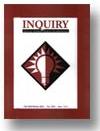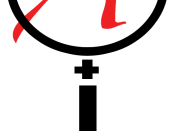"When you say that there is a mountain and there is flat land and they are different, your mind automatically, naturally, becomes crystallized around the concept of a mountain as reality and flat land as reality. This crystallization prevents you from seeing that they are one thing. You do not see the reality that is beyond the distinctions, because you are looking at the distinctions, at the differentiated concepts. Because you think that reality is composed of those differentiated concepts, you don't see the unity beyond the concepts. And if you don't see the unity beyond the concepts you don't see reality, you only see concepts." (Diamond Heart Book 4, pg 276-277)Critical thinking process is learning actively and skillfully. Critical thinking consists of but not limited to applying, analyzing, evaluating information that was gathered. Information is gathered from ones observation, experiences, reflections, reasoning's and communication as a guide to their beliefs and actions.
Ones values transcended subject matters divisions of clarity, accuracy, precision, consistency, relevance, sound evidence, good reasons and fairness. Critical thinking comes from ones thoughts, feelings, wants, and traits. Failure to recognize the relationship between these can easily lead to different forms of both individuals and collective deceptions. When someone posses skills without these can result in weak thinking. Fair and strong minded critical thinking requires humility, empathy, integrity, perseverance, courage, confidence in reason, and other traits. Critical thinking without these traits results in unethical thoughts. In short, a con artist often uses a defective but effective form of thought serving unethical purposes. However, critical thinking itself is to analytical consideration readily and may be considered largely objective. The structures or elements of thoughts in all reasoning, purpose, problems, questions, issues, assumptions, concepts, empirical grounding; reasoning leading to conclusions, implications and consequences, objections from alternative viewpoints, and frame...


